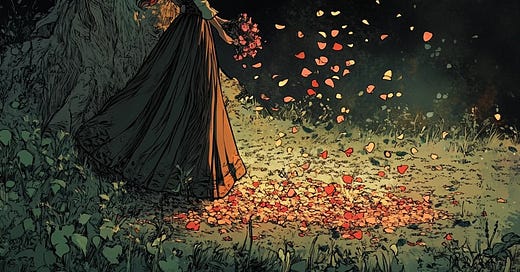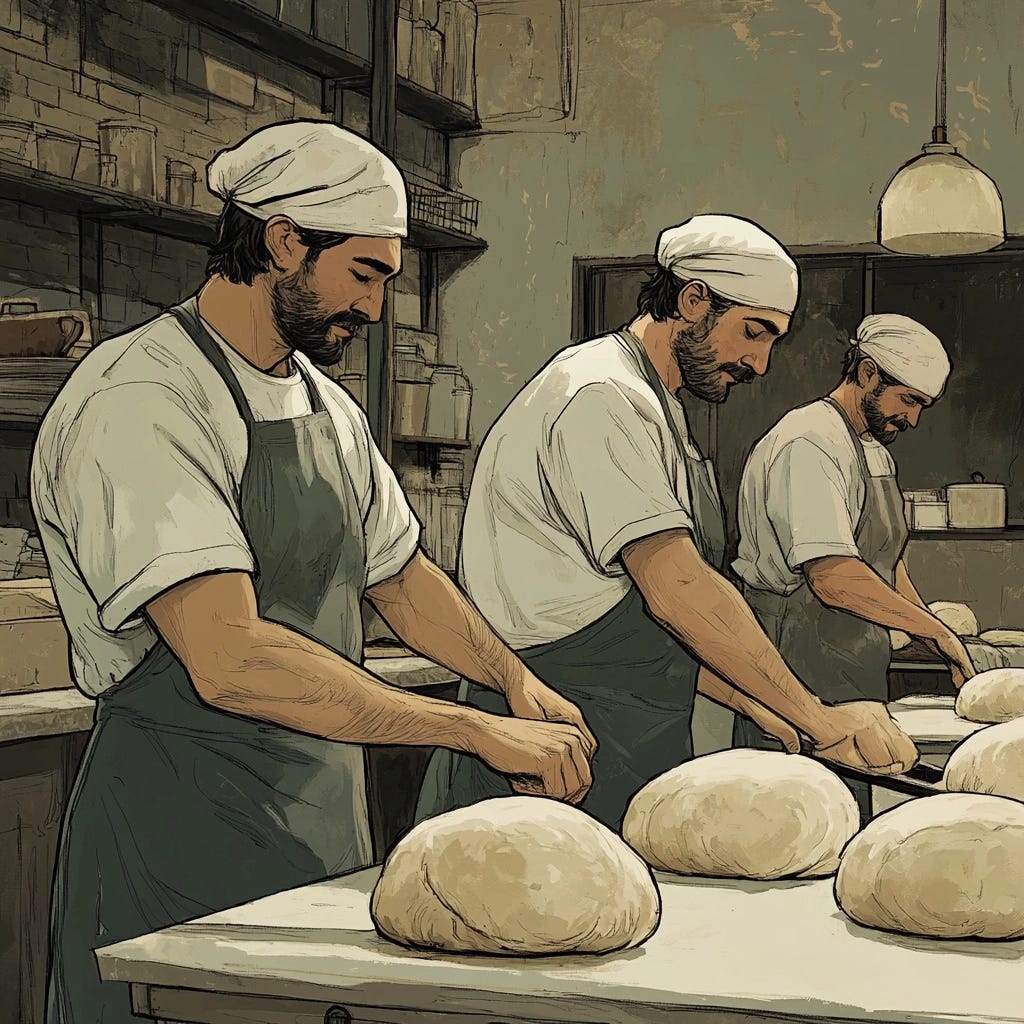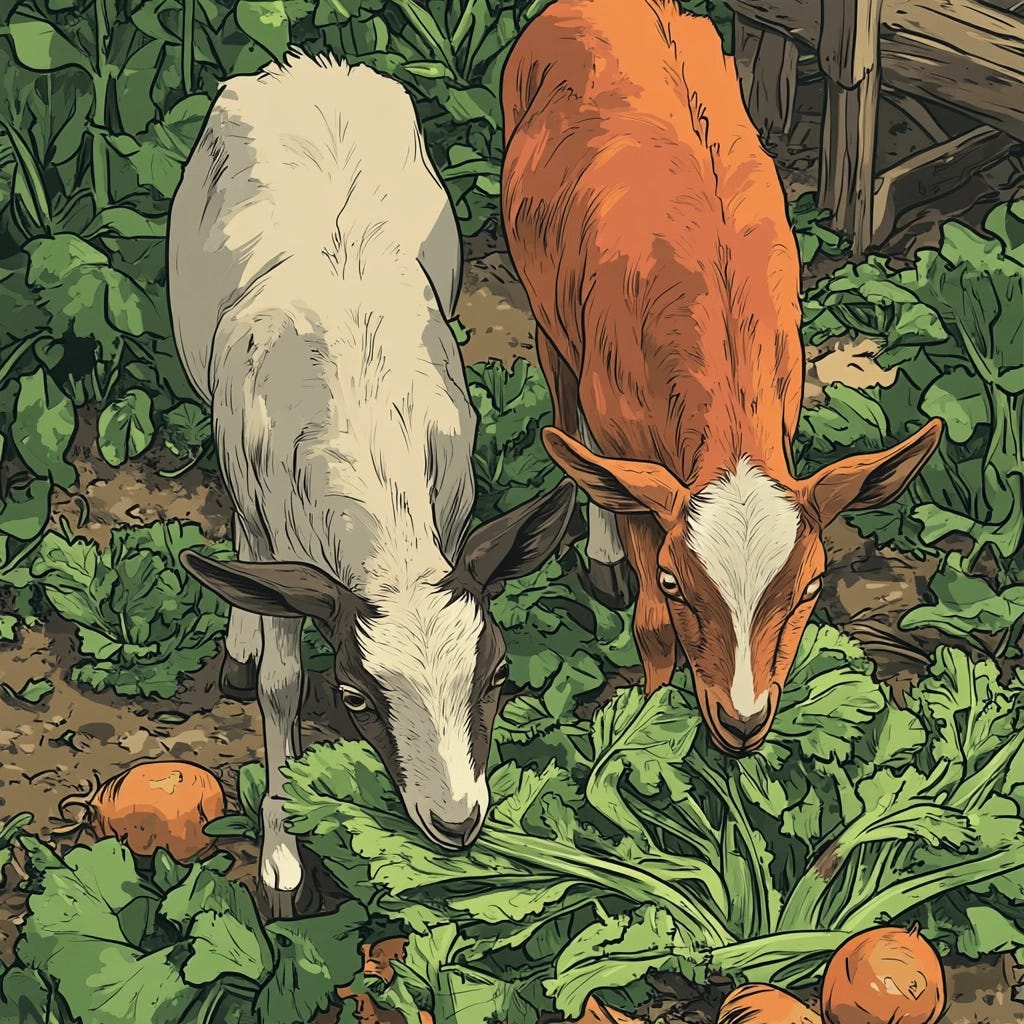The Lonely Princess and the Flower Petals
The Tragic Fall of a Princess who traded wisdom for kindness.
Once upon a time, nestled along the sparkling shores of an azure sea, there was a kingdom called Luxinmari which means light by the sea. Known for its towering crystal spires, lush gardens, wisdom, and enlightenment, it was built after a long period of fierce wars followed by 75 years of peace.
This history led the people to value learning, beauty, and above all kindness. Their schools, especially the great Academy of Minds, were renowned across the lands for producing thoughtful sages who could soothe even the most troubled hearts.
For three generations, the Academy thrived under the guidance of the Council of Elders, wise mentors who believed that each student’s potential was as unique as the stars. They trained sages to listen deeply, speak truthfully, and heal with compassion. The people of Luxinmari flourished, finding comfort and strength in the wisdom of their healers.
But as Princess Evergreen of Luxinmari reached the age of maturity, many had noticed that a change had come over the land.
Princess Evergreen and her ladies in waiting who were housed in the safest part of the castle were lonely and sad. While there was beauty everywhere they looked, for them that made the small things stand out all the more. Even the sages had been unable to help the maidens find contentment.
The Princess and her ladies would fret over bread if it wasn’t evenly sized and perfectly baked. Goats in their pens inspired sadness because they weren’t running free. And Princess Evergreen especially couldn’t bear the sight of the flower petals falling from the trees. She was especially troubled by the unkindness of it all.
Then one fateful day, a dark wind blew through the kingdom carrying whispers of progress. Envoys from a distant land had heard of the lonely Princess Evergreen and brought her news of a doctrine that promised perfect harmony where everyone thought and believed the same, ensuring no one ever felt discomfort because everyone would be kind all the time.
The Council of Elders, intrigued yet wary, invited these envoys to speak at the Academy. Their words were sweet as honey but carried a sting like a scorpion.
"Why strive for individuality," they argued, "when uniformity can create harmony? Why allow diverse thoughts when a single narrative ensures no one is ever wrong?"
The Dawn of Accreditation
Princess Evergreen loved this new idea of uniformity. She felt in it the promise of perfectly baked bread for all, goats living exactly as nature intended, and she was sure it would also solve the problem of the falling flower petals, for with uniformity everything thing would be truly kind all the time.
For the first time, she felt as though she could do something important. So, she approved the new plan.
To implement their ideas, the envoys established a Board of Accreditation. This board would decide which schools, including the Academy of Minds, were worthy of the kingdom’s seal of approval. At first, the board’s intentions seemed noble: to ensure all sages met a high standard of skill and compassion.
But over time, they issued mandates that all students must adhere to a single ideology, valuing "approved truths" over critical thinking. Professors were required to grade students not only on their skills but also on their agreement with these doctrines. Students who dared question the mandates faced exile, no matter how brilliant or empathetic they were.
The Academy’s once-diverse gardens of thought became a barren field, where only one kind of flower was permitted to grow.
Princess Evergreen’s Decree
Among themselves, the people grew concerned. This new way of working may have been intended as kind, but they found it had stolen some of their joy. Now, all the bakers used the same flour, the same ovens, and they even kneaded the dough with the same rhythm ticked out by a clicking wand.
The goats roamed free, but they also gobbled up all the vegetables the people grew for their tables, only the onions and peppers were spared. The people grew thin, but they dared not speak out even among themselves for fear they would be cast out for being unkind and never see their loved ones again.
Save for the falling flower petals, Princess Evergreen loved the new changes. Her bread was always exactly to her liking and the antics of the goats roaming the courtyards made her smile with delight.
But what to do about the falling flower petals?
Then she had an idea! The townsfolk could collect the petals and sew them back to the branches. Then finally all would be right and the world would be perfect. She sent out the decree.
But quietly the people were troubled. Deep down they knew this was utter foolishness and in years passed it would have been right and just to speak so with truthfulness. But to Princess Evergreen’s ears, such blunt wisdom would have been thought unkind.
Hoping to find a pathway to speak to the Princess with compassion, a few brave souls decided to bring this to the Academy of Minds in the hope that they could help by listening deeply and speaking truthfully.
The New Board
When the townsfolk got to the Academy, they found that the edicts of the Board of Accreditation had changed things radically. The sages who emerged from the Academy were no longer equipped to address the complexities of the human heart. Instead of offering solace, they recited scripts that felt hollow to the kingdom’s troubled souls. Townspeople left sessions feeling unheard, their struggles dismissed as "noncompliant" with the approved beliefs.
The people were shocked and their trust in the Academy dwindled. They began to whisper of the days when sages truly listened and helped without judgment. But their whispers were drowned out by the Board, which doubled down on its mandates, claiming the discontent was due to "resistance to progress."
Meanwhile, Princess Evergreen and her ladies lived far from the kingdom’s turmoil. In grand estates overlooking the sea, they dined on perfect bread and spoke of "uplifting the masses" without ever setting foot in the crumbling villages.
In despair and not feeling they had much choice the townspeople began collecting the fallen flower petals and one by one sewing them back on the branches.
The Undoing of Luxinmari
The work of sewing petals onto branches proved as tedious as it was futile. No sooner had one petal been stitched in place than another would drift to the ground. The people labored under the decree, their fingers pricked and sore from needles, their backs aching from long hours spent in the orchards. But none dared to question the task, for fear of being cast out as "unkind."
As seasons passed, the once-thriving kingdom of Luxinmari began to wither. The fields, untended while hands were busy with the petals, grew barren. The wells, neglected, ran dry. The laughter of children faded into silence as more and more of them were trained to speak only in the approved phrases of the Academy.
Yet, Princess Evergreen remained oblivious, gazing from her high tower, delighting in the sight of trees with petals stitched in place, believing that she had finally achieved harmony. The Board of Accreditation assured her that Luxinmari had never been better.
Then, one fateful storm arrived. The winds howled through the kingdom, tearing at the trees. The fragile, threadbare petals—so painstakingly sewn—were ripped away in an instant. The people, worn thin from hunger and exhaustion, could only watch as nature undid all their work in a single night.
For the first time, Princess Evergreen descended from her tower, wandering through the ruined orchards, where petals lay scattered like broken dreams. She turned to her sages, the graduates of the Academy, pleading for guidance. But they had no wisdom to offer, only scripted reassurances that the storm had been "a worst-case scenario and could not have been predicted or prepared for."
At last, one old woman, a baker who had once made uneven loaves but had always been kind in her way, dared to speak.
"My Princess," she said, "we were never meant to sew the petals back on the trees."
Princess Evergreen looked at her in shock. "But kindness—!"
"Kindness is not control," the woman said softly. "Kindness is not forcing the world to fit a perfect shape. The petals must fall. The goats must be penned. Bread may be uneven. And wisdom must come from truth, not decree."
Everyone was silent.
The people, watching, held their breath.
Would the Princess, see the truth at last?
But before she could answer, the Board of Accreditation stepped forward. "This woman spreads dangerous ideas," they warned. "Do not listen!"
Princess Evergreen hesitated. She looked at the stitched trees, the starving people, the silent Academy. For a moment, something flickered in her eyes—doubt, perhaps, or something older, something true.
But she turned away. "The storm was an accident," she said finally. "We must try again. Sew the petals back on the trees."
And so, the people of Luxinmari, too afraid to hope, bent their heads and returned to their needles.
And one by one, they vanished.
Some left in the night, sailing across the sea to lands where sages still listened and bakers still baked as they pleased. Others, too weary to flee, simply faded away.
The kingdom, once bright as the dawn, dimmed like an ember burning to ash.
And Princess Evergreen, alone in her tower, watched the trees, waiting for the day when no petals would fall at all.
Housekeeping
I have been reaching out to various groups around Tennessee and elsewhere in an effort to raise awareness about the problems in counseling, and how we can effect change by focusing attention on accreditation.
That is already starting to have an effect on my calendar. I have every intention of trying to keep that balanced, but this is a heads up, just in case I miss a pass and drop the ball in the coming weeks as I figure out how to do that.
Social events can overwhelm me so making these kinds of steps is definitely a growth edge for me and a bit scary. At the same time, I’m also excited to be doing new things and taking this message out in the world. Wish me luck.
In other news, on a recent walk with Poppet, we saw something on the trail that was quite surprising. Check out this print!
Naturally, I couldn’t help but wonder what sort of monster was responsible for a track like that. Perhaps it was a strange new beast. The government did have a Secret City in these parts during WWII. With obvious claw marks, it wasn’t a cat, but it was also too small to be a bear, something you do see around these parts from time to time.
Could this be a wolverine? They do have five toes, but holy crap if it’s a wolverine we need to get the heck out of here they are mean as fire.
But what would one be doing this far south? Also, they have a smell. Nope, unlikely a wolverine.
As it turned out looking just a little further ahead on the trail told the tale. This was a dog that stepped into its own front paw track at just the right place to create a many-toed monster. Or maybe two dogs over time.
Thus the Heavy Water Quintalurk of East Tennessee burst into existence and just as quickly disappeared back into the collective unconscious. I blame quantum. I’ve also heard that quantum is unpredictable. So beware, the Heavy Water Quintalurk might be headed your way next.
On the Bookshelf
Yes, it’s still the same books. Apparently, I’m hopeless as a reader right now if it isn’t creepy textbooks, student handbooks, or other dry documentation. Lordy, how did this come about?! 😂
Help Keep This Conversation Going!
Share this post on social media–it costs nothing but helps a lot.
Want more perks? Subscribe to get full access to the article archive.
Become a Paid Subscriber to get video and chatroom.
Support from readers like you keeps this project alive!
Diogenes in Exile is reader-supported. If you find value in this work, please consider becoming a pledging/paid subscriber, donating to my GiveSendgo, or buying Thought Criminal merch. I’m putting everything on the line to bring this to you because I think it is just that important, but if you can, I need your help to keep this mission alive.
Already a Premium subscriber? Share your thoughts in the chat room.
About
Diogenes in Exile began after I returned to grad school to pursue a Clinical Mental Health Counseling master’s degree at the University of Tennessee. What I encountered, however, was a program deeply entrenched in Critical Theories ideology. During my time there, I experienced significant resistance, particularly for my Buddhist practice, which was labeled as invalidating to other identities. After careful reflection, I chose to leave the program, believing the curriculum being taught would ultimately harm clients and lead to unethical practices in the field.
Since then, I’ve dedicated myself to investigating, writing, and speaking out about the troubling direction of psychology, higher education, and other institutions that seem to have lost their way. When I’m not working on these issues, you’ll find me in the garden, creating art, walking my dog, or guiding my kids toward adulthood.
You can also find my work at Minding the Campus











